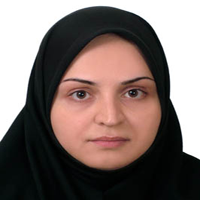Petroleum wastewater treatment and optimization of effective parameters using electrocoagulation process
Author(s):
Article Type:
Research/Original Article (دارای رتبه معتبر)
Abstract:
Petroleum is the major source of energy and the activities related to the petroleum industry leading to high volumes of wastewater and emissions different pollutants to water systems. According to studies, world oil demand will increase to about 107 million barrels a day over the next two decades, and about 32 percent of global energy will be provided from Petroleum by 2030. Thus wastewater resulting from oil and refinery industry is increasingly rising and discharges into the environment, which is a serious threat to the world's water resources. A large amount of water is used to extract and to refine the petroleum in oil refineries, thus produce the large amounts of wastewater. The wastewaters containing various kinds of pollutants with different concentrations are of environmental problems due to high organic load and hard-biodegradable compounds. With the increasing drinking water standards and environmental stricter regulations relation to discharge of sewage, electrochemical technologies have gained their importance all over the world during the last two decades and now electrochemical processes such as recovery of metals, electrocoagulation, electro-flotation and electro-oxidation can be effective technologies in the field of different wastewater treatment. In the electrocoagulation process by applying an electric current to the cathode and anode electrodes in a conductive solution by dissolving anode, coagulants produced in situ and cause the flocs is that they are floating with bubbles of hydrogen gas generated at the cathode. The metal ion generation takes place at the anode, while hydrogen gas is produced at the cathode. The metal ions form flocculates which trap contaminants while the hydrogen gas floats these particles. In this study, the electrocoagulation process was carried out with the use of a cathode and an anode made of stainless steel to reduce pollution from synthesis wastewater. For this purpose, the various parameters are optimized separately in this system by one factorial method, and then use experiment design methods. The effects of five parameters including the electrode surface, initial COD concentration, current density, pH and NaCl concentration were evaluated in the range of 23.36 to 78.36 cm2, 100 to 2500 mg/L, 2 to 30 mA/cm2, 3 to 11 and 0.3 to 2 g/L, respectively, in the case of electrocoagulation process. The optimum conditions of electrode surface, initial COD concentration, current density, pH and NaCl concentration were achieved 23.36 cm2, 900 mg/L, 20 mA/cm2, 8.5 and 0.5 g/L, respectively, for this process with energy consumption of 7.3 kWh/kg CODRem and electrode consumption of 0.4 Kg Fe/Kg CODRem during 60 minutes. The results of the experimental design of response surface methodology were confirmed the results of OFAT method with acceptable obtained error for the electrocoagulation processes. Based on results from experimental design of response surface methodology in this process, current density, time, pH and concentration of sodium chloride, respectively, were the most influential parameters. Electro-coagulation process seems to be an economic and environmental friendly process to remove the pollutants from wastewater. It has been demonstrated that electrocoagulation process with the use of stainless steel anode and cathode is a very effective and operative method to degrade Petroleum pollution and reduce COD.
Keywords:
Language:
Persian
Published:
Quranic Knowledge Research, Volume:18 Issue: 5, 2018
Pages:
177 to 187
https://www.magiran.com/p1946912
سامانه نویسندگان
مقالات دیگری از این نویسنده (گان)
-
Modeling, optimization and kinetic investigation of Acid Orange 7 degradation using ozonation in a cylindrical reactor with recirculation flow with RSM
Mohamad Ghalebizade, *
Quranic Knowledge Research, -
Optimization of Effective Parameters in Removal of Acid Blue 25 by Fenton Process with the Aim of Reducing Iron Consumption
Sobhan Hooshmand, *
Journal of Environmental Sciences and Technology,


